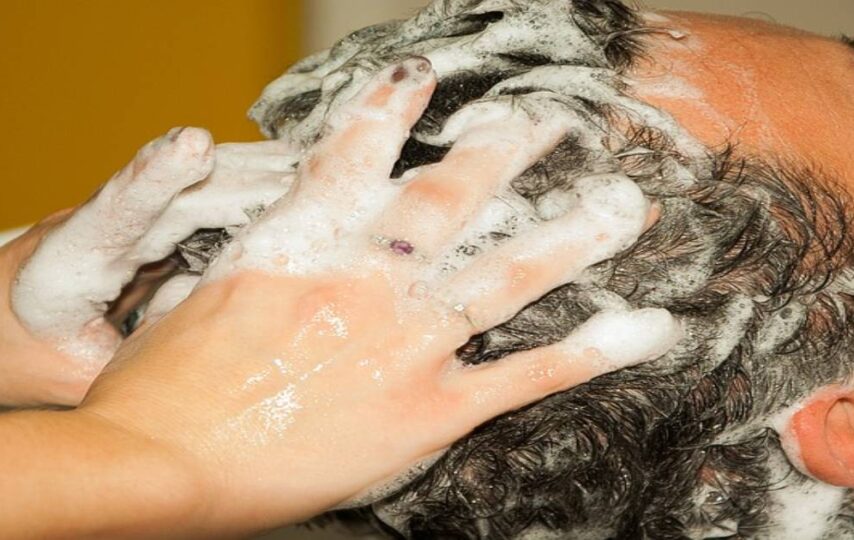You probably use shampoo every time you wash your hair, right? But do you really need to? The thought of not using shampoo may sound crazy, but have you ever wondered if it is really helping keep your scalp clean and healthy? Let’s dig deeper into what your shampoo could actually be doing to your hair.
What Does Shampoo Do?
You may not realize this, but it wasn’t until the 1930s that shampoo was introduced to the United States. Before that, people would wash their hair with bar soap. You can probably imagine that bar soap left hair feeling rough, dry, and unmanageable. So, that’s why shampoo was developed.
So how does shampoo work? It is designed to remove unwanted oil and dirt from the hair and scalp. And that’s not all! Today’s shampoo can also condition the hair, give it shine, and make it easier to maintain. Shampoo captures and traps excess oil, dirt, and product residue, which is rinsed out to leave your hair clean. It also works as a moisturizing and protective barrier for your skin and hair.
What’s in Shampoo?
Shampoo is easily formulated to remove unwanted oil and dirt from the hair and scalp. But it’s more challenging to formulate one that leaves hair soft, smooth, and manageable. Shampoos are formulated with three main types of ingredients.
- Functional ingredients
These are ingredients that make shampoos work:
- Surfactants – these are the ingredients that cleanse the hair and scalp.
- Sequestering agents – these ingredients prevent soap scum.
- Preservatives – these are necessary for all water-based like shampoo. Preservatives prevent contamination from bacteria and fungus.
- Aesthetic ingredients
These are ingredients that make the product look appealing. For instance, thickeners are added to give shampoo substance, so it isn’t the consistency of water. Foaming agents and ingredients that add sparkle or a pearlescent quality can also be added. While these ingredients don’t have anything to do with the shampoo’s ability to clean your hair, it does improve the look of the shampoo products that are sitting in the shelves.
- Marketing ingredients
These are vitamins and other ingredients that are added to appease the claims written on the front of the shampoo bottle. Take Vitamin C, for example. Many shampoo bottles claim that Vitamin C is added to protect the hair from ultraviolet rays. Unfortunately, there’s little science proving these claims.
Some Harmful Effects of Shampoo
While shampooing your hair may be part of your daily routine, there’s actually not any evidence that proves using shampoo has any health benefits. While shampoo hasn’t been shown to cause hair loss, it can dry your hair out, causing it to break. Here are some other harmful effects that could come from shampooing on a daily basis:
- It causes buildup.
Shampoos can leave nasty chemical buildups on your scalp. So, over time, this can mess with your scalp. Eventually, this can cause your scalp to overproduce oils, leaving it greasy.
- It causes hair to frizz.
If you shampoo your hair too often, it can leave it dry and dull, which leads to frizz. This can often lead to breakage.
- It can make your hair moody.
If you decide to go a few days without shampooing, then your hair could go crazy and start producing oils. But, if you break down and shampoo, then you will have to go through the whole situation again. So, it’s best if you’re trying to train your hair to stop using shampoo, then you do it when you don’t have to go in public for a while.
- It’s wasteful.
Think about all the bottles of shampoo you go through. That’s a lot of plastic bottles just sitting in the landfill!
- It can’t be washed out.
It’s pretty ironic, shampoo washes out everything from your hair, except for shampoo. The best way to get rid of shampoo is to use a shampoo that’s designed for cleaning your scalp, or you can just wait for your scalp to dispose of it naturally.
How Can You Make Your Hair Healthier?
Many people have joined the “no-poo” movement and ditched shampoo for healthier, better-looking hair. Here’s what you can do if you’ve noticed shampoo is making your hair less than lush:
- Cut out shampoo completely.
If you want to completely stop using shampoo, it’s possible. You can do this by starting to use a minimal amount of conditioner the next time you shower. So, instead of lathering your hair up with both shampoo and conditioner, just skip the shampoo. Conditioner isn’t as harsh on your hair as shampoo is and it should help keep your scalp and strands moisturized.
- Replace your shampoo with ACV.
Some people use apple cider vinegar to wash their hair instead of using a store-bought shampoo. That’s because apple cider vinegar acts as a natural conditioner. It can also remove product buildup and help clear up dandruff. To try this out, just fill an empty spray bottle with three tablespoons of apple cider vinegar for every cup of water. When you’re in the shower, just apply the solution to your scalp and massage for a few minutes before rinsing it out.
- Use natural shampoos.
If you don’t want to completely cut out shampoo, then there are plenty of natural shampoos on the market that people have reported seeing great results with. Make sure to be wary of the labels and check the ingredients to make sure the shampoo is truly natural.
Kick Your Hair Problems to the Curb with a Trusted Dermatologist
You’ve seen the bad side to shampoo, like hair that is frizzy or dry, but not all shampoo is bad. If you’ve noticed your hair thinning, talk to your dermatologist about a hair loss treatment. Women’s dermatology specializes in laser hair removal and other scalp problems. And it’s not just women that may need help, men’s dermatology can help with hair loss treatments and other hair problems. If you think your hair woes lie deeper than your shampoo, then reach out to your dermatologist to get some answers



